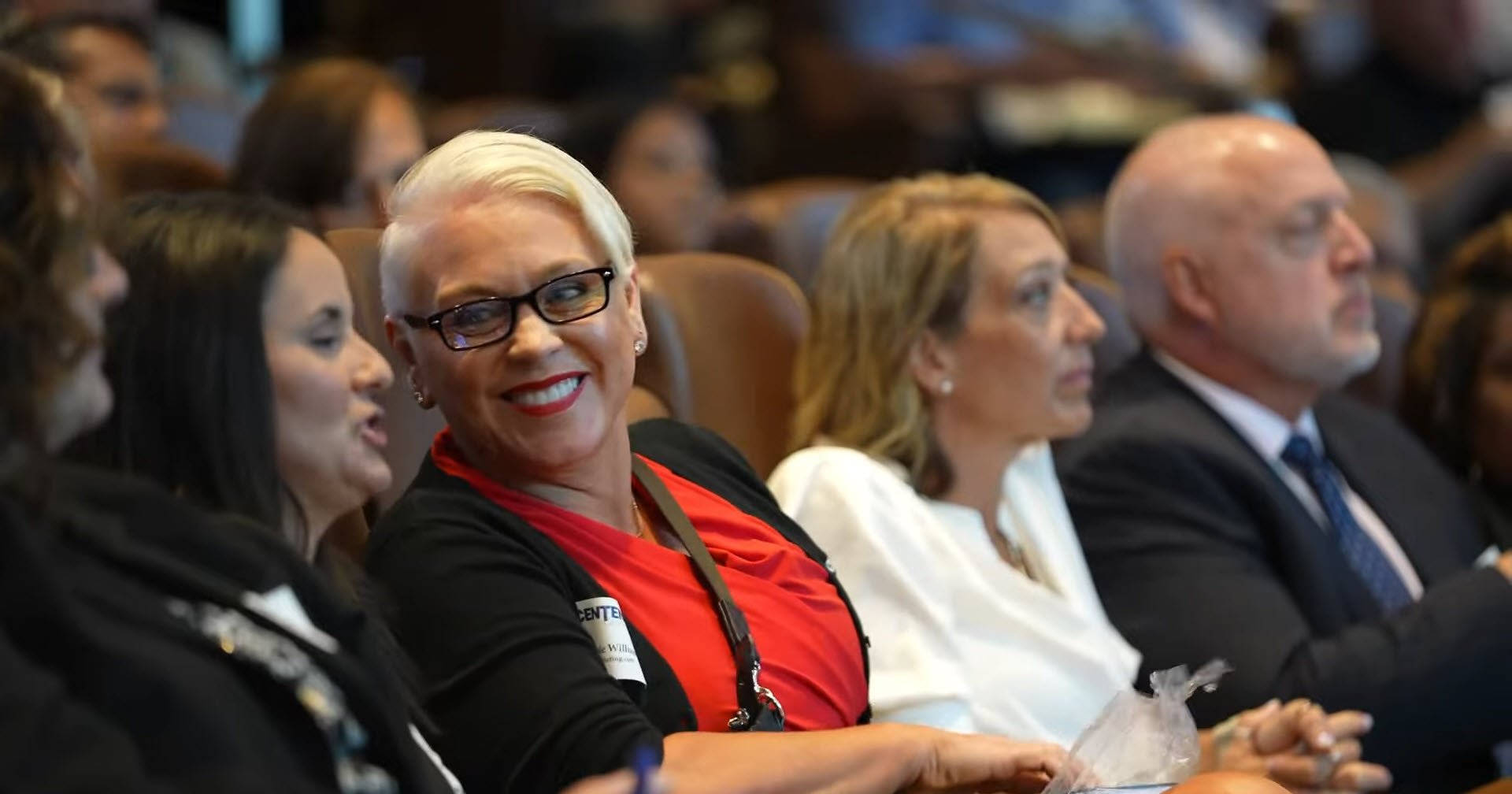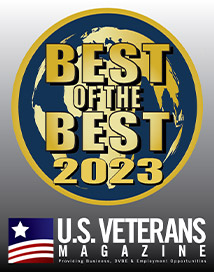Supplier Diversity and Economic Impact
Centene is committed to inclusive representation when purchasing goods and services. By working with local and diverse suppliers, we tap into new ideas that add value to our businesses and help us provide innovative solutions to our members.
What is Supplier Diversity?
Supplier diversity is a business strategy that emphasizes sourcing goods and services from a wide range of suppliers, particularly those owned by individuals from underrepresented demographics such as minorities, women, veterans, disabled and LGBTQIA+. The goal is to promote inclusivity and create equal opportunities within the supply chain, fostering economic growth and job creation in the communities we serve.
Centene's Supplier Diversity Program
Our Supplier Diversity Program is based on Centene’s belief in supporting the growth and representation of diverse vendors and suppliers by creating the opportunity to do business with Centene. We are committed to promoting economic equity, knowing that, as a result, we’ll advance health equity for our members and the communities we serve.
The program exemplifies our dedication to promoting business opportunities within Centene for state, federal and nationally recognized certified minority- and women-owned businesses (MWOBE), as well as certified veteran-, LGBTQIA+- and disability-owned businesses. This includes identifying opportunities for diverse suppliers to participate in the competitive bid process and promoting business development of diverse suppliers while building strong relationships.
Business Partnerships
Working with customers, suppliers and local organizations on issues that drive value for our communities
Corporate
Focusing on strategies that impact spend and savings
Health Plans
Implementing localized economic impact strategies
We also believe that a diverse supplier base drives down cost, increases competition and fuels innovation. To that end, we have implemented the requirement that every RFP must include research into the availability of diverse suppliers and, if found, at least one diverse vendor should be included in the RFP process. Our goals are set at the enterprise level and implemented through our category-sourcing strategies.
Because our health plans are focused on local implementation of services, our corporate buying strategies include local needs and state requirements. It is this unique distinction that enables Centene to partner with community-based vendors to provide localized member care and drive job creation and economic impact within the communities we serve.


"At Centene, we believe that a diverse and inclusive workforce is a vital part of how we serve our members and communities. This commitment to diversity and inclusion is a central part of how we do business – and it extends to our selection of partners and suppliers. Centene is committed to spending $1 billion with diverse suppliers – minority-, women-, veteran-, LGBTQ- and disability-owned businesses by 2026."
- Sarah London, CEO, Centene
Who is a Diverse Supplier?
A diverse supplier refers to a business entity that is owned, operated and controlled by individuals or groups belonging to underrepresented demographics in the business world. These demographics typically include minorities, women, veterans, LGBTQIA+ individuals, disabled persons and others. The goal of engaging diverse suppliers is to promote inclusivity, equality and representation in the supply chain to advance health equity for our members and the communities we serve.

When organizations actively seek out and conduct business with diverse suppliers, they contribute to a more equitable and diverse economy. This practice helps provide opportunities and support to entrepreneurs and business owners from various backgrounds, ultimately fostering innovation, economic growth and social progress.
Black/African American-Owned Business: A business that is at least 51 percent owned, operated and controlled by an African American individual(s) with U.S. citizenship. African Americans have origins in any of the black racial groups of Africa.
Asian-Owned Business: A business that is at least 51 percent owned, operated and controlled by an Asian American individual(s) with U.S. citizenship. Asian is the ethnicity of an individual from the Asian geographical area that is not included in the Asian-Indian or Asian-Pacific classifications.
Asian-Indian-Owned Business: A business that is at least 51 percent owned, operated and controlled by an Asian-Indian American individual(s) with U.S. citizenship. Asian-Indian is the ethnicity of an individual whose origins are from India, Pakistan or Bangladesh.
Asian-Pacific-Owned Business: A business that is at least 51 percent owned, operated and controlled by an Asian-Pacific American individual(s) with U.S. citizenship. Asian-Pacific is the ethnicity of an individual whose origins are from Japan, China, Taiwan, Korea, Vietnam, Laos, Cambodia, Philippines, Samoa and Guam, U.S. Trust Territories of the Pacific or the Northern Mariana.
Hispanic-Owned Business: A business that is at least 51 percent owned, operated and controlled by a Hispanic American individual(s) with U.S. citizenship. Hispanic is the ethnicity of an individual whose origins are from any of the Spanish-speaking areas of Latin America or the following regions: Mexico, Central America, South America and the Caribbean Basin.
Native American-Owned Business: A business that is at least 51 percent owned, operated and controlled by a Native American individual(s) with U.S. citizenship. Native American is the ethnicity of an individual whose origins are from American Indians, Aleuts, Eskimos and Native Hawaiians.
Women-Owned Business: Women-Owned Business: A business that is least 51 percent owned, operated and controlled by a female individual(s) with U.S. citizenship.
Disabled-Owned Business: Any for-profit enterprise, regardless of size, located in the U.S. or its trust territories, which is at least 51 percent owned, operated and controlled by an individual(s) with a permanent mental or physical impairment that substantially limits one or more of the major life activities and which has a significant negative impact upon the company's ability to successfully compete. The ownership and control shall be real and continuing and not created solely to take advantage of special or set-aside programs aimed at minority business development. The certifying agency for this category of business owners is DisabilityIN.
LGBTQ+-Owned Business: A business that is at least 51 percent owned, operated, managed and controlled by a lesbian, gay, bisexual, or transgender person(s) who is either a U.S. citizen or a lawful permanent resident; exercises independence from any non-LGBTQ+ business enterprise; has its principal place of business (headquarters) in the U.S.; and has been formed as a legal entity in the U.S.
Veteran-Owned Business: A business that is at least 51 percent owned by one or more veterans (as defined in 38 U.S.C. 101(2)) or, in the case of any publicly owned business, at least 51 percent of the stock is owned by one or more veterans; or the management and daily business operations are controlled by one or more veterans.
Disabled Veteran-Owned Business: A sole proprietorship that is at least 51 percent owned by one or more disabled veterans or, in the case of a publicly owned business, at least 51 percent of the stock is owned by one or more disabled veterans; a subsidiary that is wholly owned by a parent corporation, but only if at least 51 percent of the voting stock of the parent corporation is owned by one or more disabled veterans; or a joint venture in which at least 51 percent of the joint venture’s management, control and earnings is held by one or more disabled veterans.
A business that meets "small" ownership criteria and the Small Business Size Standard for its industry, as defined by the Small Business Administration (SBA).
What is a Small Business Size Standard?
A size standard, which is usually stated in number of employees or average annual receipts, represents the largest size that a business (including its subsidiaries and affiliates) may be to remain classified as a small business for SBA and federal contracting programs. The definition of “small” varies by industry.
SBA Certifications
SBA certifications, including 8(a), Small Disadvantaged Businesses (SDB) and Historically Underutilized Businesses (HUBZone), have other criteria that must be met. Please refer to www.sba.gov for a full description of the certification programs and the eligibility requirements.
Benefits of Working with Us
- Second tier requirements for prime vendors
- Mitigated pay terms for small and diverse companies
- Lending referral program with Liberty Bank
- Economic impact strategies



In 2023, Centene was recognized as a Supplier Diversity Champion by USPAACC and Best of the Best for Veterans by the US Veterans Magazine.
Are You Interested in Working with Centene?
We invite you to learn more about our commitment to fostering a diverse supplier base and welcome all potential suppliers who can fulfill our requirements on a competitive basis.
If you are interested in exploring opportunities at Centene, please register your company on our online portal or contact us by email. Please include a copy of your certification, key core competencies of your business and primary sales contact.